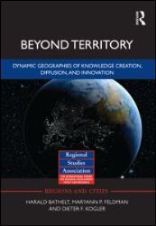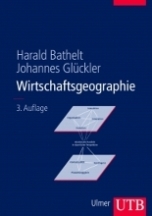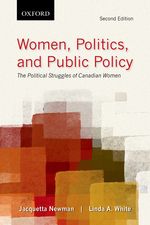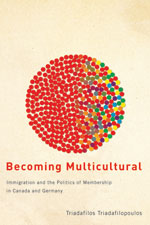
Betting on Biotech: Innovation and the Limits of Asia’s Developmental State
After World War II, several late-developing countries registered astonishingly high growth rates under strong state direction, making use of smart investment strategies, turnkey factories, and reverse-engineering, and taking advantage of the postwar global economic boom. Among these economic miracles were postwar Japan and, in the 1960s and 1970s, the so-called Asian Tigers—Singapore, South Korea, and Taiwan—whose experiences epitomized the analytic category of the “developmental state.”
In Betting on Biotech, Joseph Wong examines the emerging biotechnology sector in each of these three industrial dynamos. They have invested billions of dollars in biotech industries since the 1990s, but commercial blockbusters and commensurate profits have not followed. Industrial upgrading at the cutting edge of technological innovation is vastly different from the dynamics of earlier practices in established industries.
The profound uncertainties of life-science-based industries such as biotech have forced these nations to confront a new logic of industry development, one in which past strategies of picking and making winners have given way to a new strategy of throwing resources at what remain very long shots. Betting on Biotech illuminates a new political economy of industrial technology innovation in places where one would reasonably expect tremendous potential—yet where billion-dollar bets in biotech continue to teeter on the brink of spectacular failure.

Canadian Federalism: Performance, Effectiveness, and Legitimacy, Third Edition
Contributed by some of Canada’s leading political scientists, the 18 original essays of this well-respected collection present an accessible, rigorous, and balanced assessment of Canadian federalism today. New chapters on regionalism, Quebec, and immigration complement updated examinations of such topics as fiscal federalism, the party system, Aboriginal politics, the urban agenda, and environmental policy, making this comprehensive and up-to-date volume an ideal introduction to Canadian federalism in the current political context.
Readership: Canadian Federalism: Performance, Effectiveness, and Legitimacy, third edition, is a contributed volume that can be used as a core or supplemental text. It is targeted at Canadian Federalism courses offered at the second-, third-, and fourth-year levels at colleges and universities, but it may also be used as a supplement for courses in public policy and administration.

The Relational Economy: Geographies of Knowing and Learning
How are firms, networks of firms, and production systems organized and how does this organization vary from place to place? What are the new geographies emerging from the need to create, access, and share knowledge, and sustain competitiveness? In what ways are local clusters and global exchange relations intertwined and co-constituted? What are the impacts of global changes in technology, demand, and competition on the organization of production, and how do these effects vary between communities, regions, and nations?
This book synthesizes theories from across the social sciences with empirical research and case studies in order to answer these questions and to demonstrate how people and firms organize economic action and interaction across local, national, and global flows of knowledge and innovation. It is structured in four clear parts: – Part I: Foundations of Relational Thinking – Part II: Relational Clusters of Knowledge – Part III: Knowledge Circulation Across Territories – Part IV: Toward a Relational Economic Policy?
The book employs a novel relational framework, which recognizes values, interpretative frameworks, and decision-making practices as subject to the contextuality of the social institutions that characterize the relationships between the human agents. It will be a valuable resource for academics, researchers, and graduate students across the social sciences, and practitioners in clusters policy. Readership: Academics and graduate students in Management, Economics, Regional Policy, Organization Studies, Geography, Sociology, and Political Economy; and Policy Makers.

Beyond Territory: Dynamic Geographies of Knowledge Creation, Diffusion and Innovation
The main purpose of the book is to discuss new trends in the dynamic geography of innovation and argue that in an era of increasing globalization, two trends seem quite dominant: rigid territorial models of innovation, and localized configurations of innovative activities. The book brings together scholars who are working on these topics. Rather than focusing on established concepts and theories, the book aims to question narrow explanations, rigid territorializations, and simplistic policy frameworks; it provides evidence that innovation, while not exclusively dependent on regional contexts, can be influenced by place-specific attributes.
The book will bring together new empirical and conceptual work by an interdisciplinary group of leading scholars from areas such as economic geography, innovation studies, and political science. Based on recent discussions surrounding innovation systems of different types, it aims to synthesize state-of-the-art know-how and provide new perspectives on the role of innovation and knowledge creation in the global political economy.

Wirtschaftsgeographie
This comprehensive handbook and textbook of geographical concepts is directed to scholars and students of geography, economics, political science and other social sciences who are interested in the relationship between economy and space. This book systematically discusses classical and new theories in economic geography and related disciplines. Beginning with a critical review of traditional regional science and optimal location approaches, the authors develop a relational conception of economic action in space that enables interdisciplinary analyses of globalization processes. This completely restructured and extended edition adds many new conceptual discussions, such as those on innovation systems, global value chains, clusters and many others. Six new chapters, almost 200 new pages and many new case studies, figures and tables make this a rich sourcebook for those interested in understanding economic action in spatial perspective.

Women, Politics, and Public Policy: The Political Struggles of Canadian Women, Second Edition
The second edition of Women, Politics, and Public Policy incorporates uniquely Canadian perspectives on the intersectionality of feminism, women’s politics, and public policy-making. After outlining historical contexts and the foundations of feminist theory, the text examines topical, practical issues, offering an approach that is well-suited to both novices and advanced learners. Extensively updated and revised, this comprehensive volume is an essential tool for examining and understanding the many aspects of women’s political activity and its relationship to public policy and social change.
Readership : Women, Politics, and Public Policy is aimed at second- and third-year students studying gender and politics, women and politics, and women and politics in Canada out of political science and women’s studies departments at universities nationwide. (Note that because of the multidisciplinary approach taken in the narrative, readers studying sociology, history, law, and social work may also find the text relevant.)

Becoming Multicultural: Immigration and the Politics of Membership in Canada and Germany
In a world of nation-states, international migration raises questions of membership: Should foreigners be admitted to the national space? If so, according to what criteria and for what ends? And should they and their children be granted citizenship? Canada’s and Germany’s responses to these questions during the first half of the twentieth century consisted of discriminatory immigration and citizenship policies aimed at harnessing migration for economic ends while minimizing its costs. Yet, by the end of the century, the admission, settlement, and incorporation of previously excluded groups had transformed both countries into highly diverse multicultural societies.
Becoming Multicultural explains how this remarkable shift came about. Triadafilopoulos argues that world-historical events and epoch-defining processes — including the Holocaust, decolonization, and the emergence of global human rights culture — gave rise to a markedly different normative context after the Second World War. These changes in global norms made the maintenance of established membership regimes difficult to defend, opening the way for the liberalization of Canada’s and Germany’s immigration and citizenship policies.
Combining sophisticated theoretical reflection and careful empirical analysis, this thought-provoking book sheds light on the dynamics of membership politics and policy making in contemporary liberal-democratic countries.

Internal Affairs: How the Structure of NGOs Transforms Human Rights
Why are some international nongovernmental organizations (NGOs) more politically salient than others, and why are some NGOs better able to influence the norms of human rights?Internal Affairs shows how the organizational structures of human rights NGOs and their campaigns determine their influence on policy. Drawing on data from seven major international organizations—the International Committee of the Red Cross, Amnesty International, Human Rights Watch, Médecins sans Frontières, Oxfam International, Anti-Slavery International, and the International League of Human Rights—Wendy H. Wong demonstrates that NGOs that choose to centralize agenda-setting and decentralize the implementation of that agenda are more successful in gaining traction in international politics.
Challenging the conventional wisdom that the most successful NGOs are those that find the “right” cause or have the most resources, Wong shows that how NGOs make and implement decisions is critical to their effectiveness in influencing international norms about human rights. Building on the insights of network theory and organizational sociology, Wong traces how power works within NGOs and affects their external authority. The internal coherence of an organization, as reflected in its public statements and actions, goes a long way to assure its influence over the often tumultuous elements of the international human rights landscape.

Prosper or Perish: Credit and Fiscal Systems in Rural China
The official banking institutions for rural China are Rural Credit Cooperatives (RCCs). Although these co-ops are mandated to support agricultural development among farm households, since 1980 half of RCC loans have gone to small and medium-sized industrial enterprises located in, and managed by, townships and villages. These township and village enterprises have experienced highly uneven levels of success, and by the end of the 1990s, half of all RCC loans were in or close to default, forcing China’s central bank to bail out RCCs. In Prosper or Perish, Lynette H. Ong examines the bias in RCC lending patterns, focusing on why the mobilization of rural savings has contributed to successful industrial development in some locales but not in others.
Interweaving insightful and theoretically informed discussions of rural credit, development, governance, and bank bailouts, Ong identifies various sources for China’s uneven development. In the highly decentralized fiscal environment of the People’s Republic, successful industrialization has significant implications for rural governance. Local governments depend on revenue from industrial output to provide public goods and services; unsuccessful enterprises starve local governments of revenue and result in radical cutbacks in services. High peasant burdens, land takings without adequate compensation by local governments, and other poor governance practices tend to be associated with unsuccessful industrialization. In light of the recent liberalization of the rural credit sector in China, Prosper or Perish makes a significant contribution to debates within political science, economic development, and international banking.

Social Forces and States: Poverty and Distributional Outcomes in South Korea, Chile, and Mexico
With the failure of market reform to generate sustained growth in many countries of the Global South, poverty reduction has become an urgent moral and political issue in the last several decades. In practice, considerable research shows that high levels of inequality are likely to produce high levels of criminal and political violence. On the road to development, states cannot but grapple with the challenges posed by poverty and wealth distribution.
Social Forces and States explains the reasons behind distinct distributional and poverty outcomes in three countries: South Korea, Chile, and Mexico. South Korea has successfully reduced poverty and has kept inequality low. Chile has reduced poverty but inequality remains high. Mexico has confronted higher levels of poverty and high inequality than either of the other countries. Judith Teichman takes a comparative historical approach, focusing upon the impact of the interaction between social forces and states. Distinct from approaches that explain social well-being through a comparative examination of social welfare regimes, this book probes more deeply, incorporating a careful consideration of how historical contexts and political struggles shaped very different development trajectories, welfare arrangements, and social possibilities.